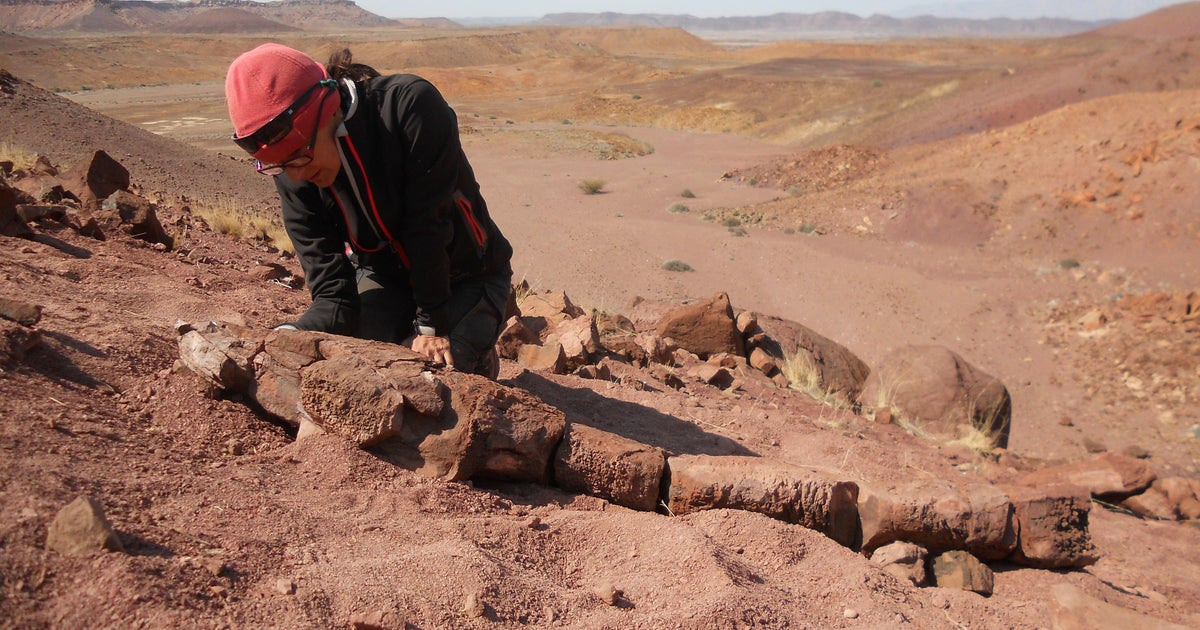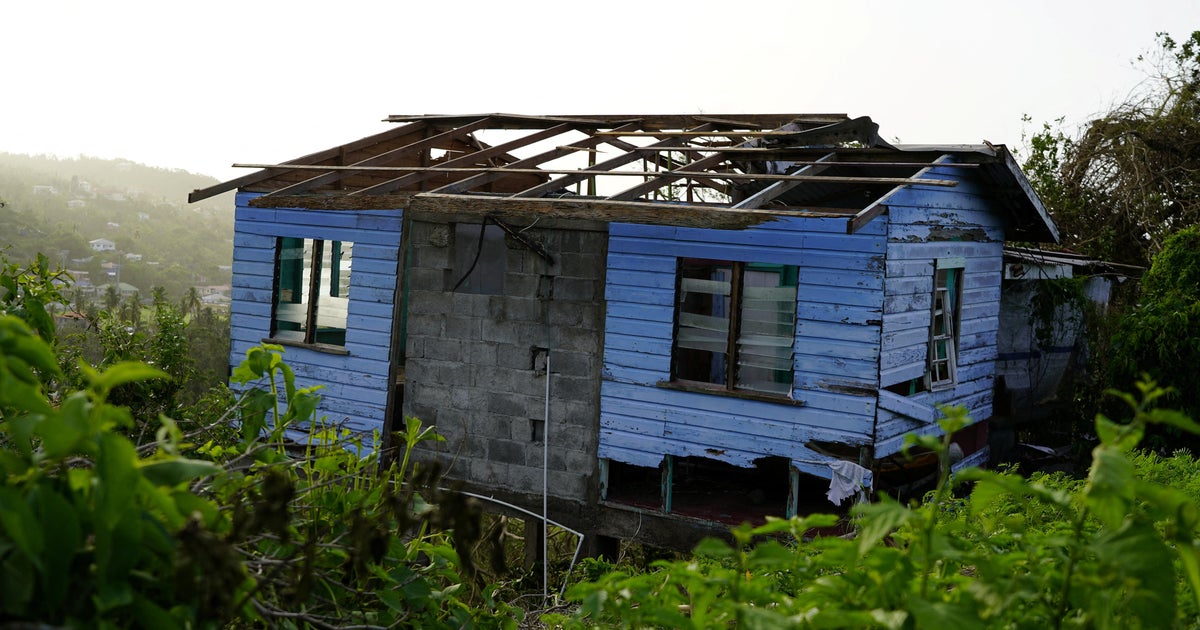CBS News
Summer of 2023 was the hottest in 2,000 years in some parts of the world, researchers say

Last summer’s sweltering heat broke more than city or regional or even national records. In what they call an “alarming finding,” scientists say that in the Northern Hemisphere, the summer of 2023 was the hottest in 2,000 years.
Global data already showed that last summer was the hottest on record. Copernicus, the European Union’s climate change observation organization, made that determination But a new study, published in Nature on Tuesday, looked even further back using both observed and reconstructed temperatures from centuries past.
And they found the heat was “unparalleled,” the researchers said.
According to their findings, the Northern Hemisphere experienced its hottest summer over the past 2,000 years by more than 0.5 degrees Celsius.
Study co-author Ulf Büntgen, from the University of Cambridge, said in a press release that last year was “exceptionally hot,” but that the true extent of that heat is visible when looking back at the historical record.
“When you look at the long sweep of history, you can see just how dramatic recent global warming is,” Büntgen said, “…and this trend will continue unless we reduce greenhouse gas emissions dramatically.”
The study also compared the temperatures of June, July and August in 2023 to those in the same months of 536 CE — the year one historian dubbed “the beginning of one of the worst periods to be alive, if not the worst year,” as it launched the coldest decade in millennia due to major volcanic eruptions. The difference from that coldest summer to the recent hottest one was 3.93 degrees Celsius.
When it comes to climate change, some people argue that the climate is constantly changing, as seen in the cold period that was kickstarted in 536 CE. But lead author Jan Esper, from the Johannes Gutenberg University Mainz in Germany, said that while that’s true, it’s the continued emission of greenhouse gases that really make a difference. Burning fossil fuels, such as oil and coal, releases a set of gases that trap the sun’s heat in the atmosphere, steadily raising average temperatures. When that’s paired with natural weather events like El Niño, which occurs when surface temperatures warm up over the Pacific, it only amplifies the impact.
“We end up with longer and more severe heat waves and extended periods of drought,” Esper said. “When you look at the big picture, it shows just how urgent it is that we reduce greenhouse gas emissions immediately.”
Experts have long warned that the world needs to take action to try to limit global warming to 1.5 degrees Celsius compared to pre-industrial times. Beyond that, the impacts of rising temperatures, including more frequent and intense droughts, hurricanes and floods, are expected to substantially worsen and drive global migrations, food scarcity and other issues.
But based on the observational record, researchers in this study found that the Northern Hemisphere may have already surpassed that. They found that temperatures in the hemisphere last summer were 2.07 degrees Celsius warmer than the average temperatures between 1850 and 1900.
“This alarming finding not only demonstrates that 2023 saw the warmest ever recorded summer across the [Northern Hemisphere] extra-tropics, but also that the 2015 Paris Agreement to constrain warming globally to 1.5 ºC has already been superseded at this limited spatial scale,” the study says.
In their research, the scientists found “inconsistencies” and uncertainties in the baseline temperatures that experts have been using to track temperature rise. Those issues were largely due to a lack of station records in more remote areas of the world and “inadequately sheltered thermometers,” researchers said.
Based on their own studies, they found that it was actually cooler in pre-industrial times than what was thought when accounting for extended cold periods. With that in consideration, they found the difference in temperatures between that time and last summer was even greater, at 2.20 degrees Celsius.
Researchers did note that their findings are largely based on temperatures in the Northern Hemisphere alone, as data for the Southern Hemisphere was sparse for the time periods they analyzed. They also said that the region responds differently to climate change because oceans are more prevalent in the southern half of the globe.
Despite the inability to develop fully worldwide temperature reconstructions and analysis, the researchers said their study “clearly demonstrates the unparalleled nature of present-day warmth at large spatial scales and reinforces calls for immediate action towards net zero emissions.”
The paper comes as the planet continues to see back-to-back months of heat records with deadly consequences. Weather experts have warned that this summer could be just as scorching as the last, with above-normal temperatures expected across the majority of the U.S.
CBS News
What to expect from 30th annual Essence Festival of Culture in New Orleans

Watch CBS News
Be the first to know
Get browser notifications for breaking news, live events, and exclusive reporting.
CBS News
GOP, Democratic strategists on Biden’s next steps with calls for him to drop out growing

Watch CBS News
Be the first to know
Get browser notifications for breaking news, live events, and exclusive reporting.
CBS News
U.S. troops leaving Niger bases this weekend and in August after coup, officials say

The U.S. will remove all its forces and equipment from a small base in Niger this weekend and fewer than 500 remaining troops will leave a critical drone base in the West African country in August, ahead of a Sept. 15 deadline set in an agreement with the new ruling junta, the American commander there said Friday.
Air Force Maj. Gen. Kenneth Ekman said in an interview that a number of small teams of 10-20 U.S. troops, including special operations forces, have moved to other countries in West Africa. But the bulk of the forces will go, at least initially, to Europe.
Tech. Sgt. Christopher Dyer / AP
Niger’s ouster of American troops following a coup last year has broad ramifications for the U.S. because it is forcing troops to abandon the critical drone base that was used for counterterrorism missions in the Sahel.
Ekman and other U.S. military leaders have said other West African nations want to work with the U.S. and may be open to an expanded American presence. He did not detail the locations, but other U.S. officials have pointed to the Ivory Coast and Ghana as examples.
Ekman, who serves as the director for strategy at U.S. Africa Command, is leading the U.S. military withdrawal from the small base at the airport in Niger’s capital of Niamey and from the larger counterterrorism base in the city of Agadez. He said there will be a ceremony Sunday marking the completed pullout from the airport base, then those final 100 troops and the last C-17 transport aircraft will depart.
Speaking to reporters from The Associated Press and Reuters from the U.S. embassy in Niamey, Ekman said that while portable buildings and vehicles that are no longer useful will be left behind, a lot of larger equipment will be pulled out. For example, he said 18 4,000-pound (1,800-kilograms) generators worth more than $1 million each will be taken out of Agadez.
Unlike the withdrawal from Afghanistan, he said the U.S. is not destroying equipment or facilities as it leaves.
“Our goal in the execution is, leave things in as good a state as possible,” he said. “If we went out and left it a wreck or we went out spitefully, or if we destroyed things as we went, we’d be foreclosing options” for future security relations.
AFP via Getty
Niger’s ruling junta ordered U.S. forces out of the country in the wake of last July’s ouster of the country’s democratically elected president by mutinous soldiers. French forces had also been asked to leave as the junta turned to the Russian mercenary group Wagner for security assistance.
Washington officially designated the military takeover as a coup in October, triggering U.S. laws restricting the military support and aid.










